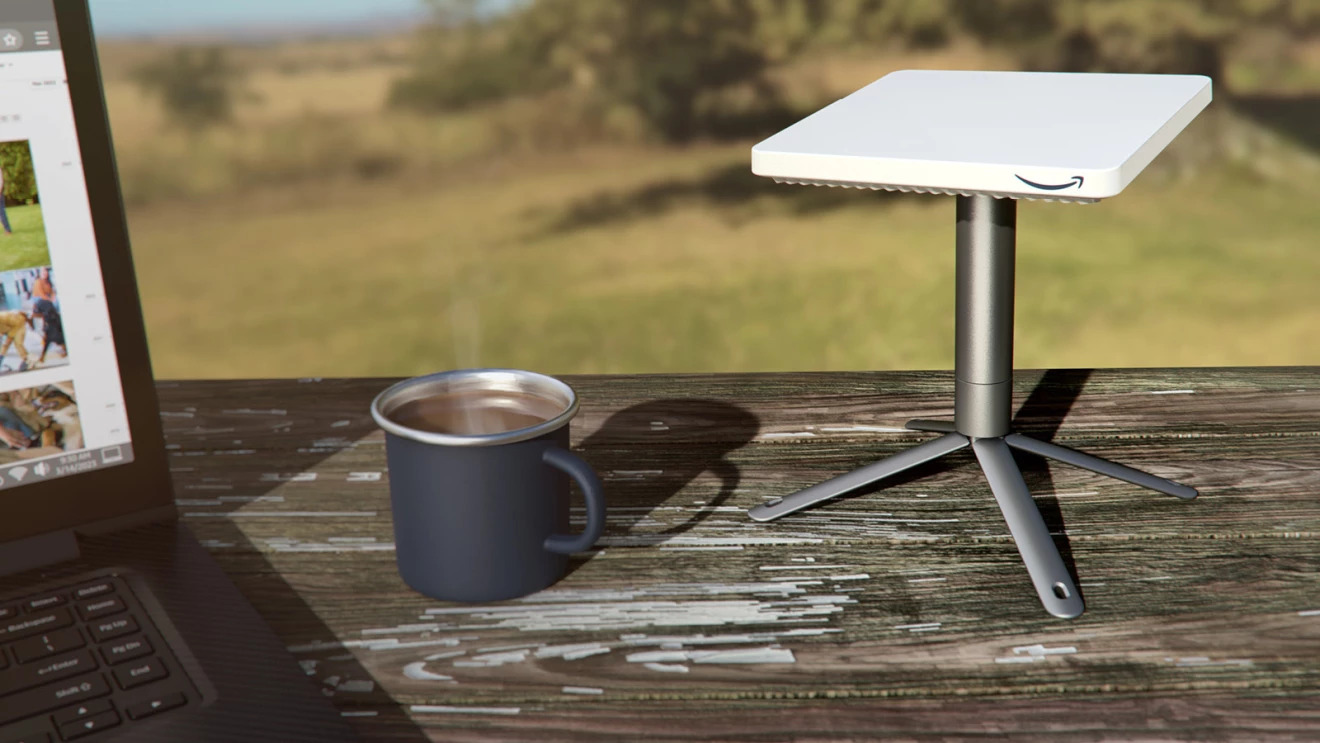Amazon’s challenger to Starlink, Project Kuiper, seems to be running into some delays. As per a blog post from Amazon, Project Kuiper’s first launch is now estimated sometime in the fourth quarter of 2024. Previously, the first completed production satellites for Project Kuiper were expected to launch in the first half of 2024.
Amazon shared its updated timeframe for Project Kuiper in a blog post. As per the e-commerce giant, the company is now expecting to ship the first completed production Project Kuiper satellites to launch sites sometime this summer. The satellites, however, are expected to launch sometime in the fourth quarter, with satellite production expected to increase heading into 2025.
“We expect to ship our first completed production satellites this summer, and we’re targeting our first full-scale Kuiper mission for Q4 aboard an Atlas V rocket from ULA (United Launch Alliance). We will continue to increase our rates of satellite production and deployment heading into 2025, and we remain on track to begin offering service to customers next year,” Amazon wrote in its blog post.
With Project Kuiper’s initial launch pushed back to Q4, Amazon’s plans for a beta trial of its satellite internet system have also been delayed. Previously, beta trials of Project Kuiper were expected to start later this year with commercial customers. In a statement to PCMag, Amazon noted that the beta trials are now pushed back to next year. “We expect to begin offering demonstrations to enterprise customers in early 2025,” Amazon informed the publication.
While Amazon did not explain the reasons behind Project Kuiper’s delays, issues with the satellite internet system’s launch partners may be a notable factor, PCMag reported. Back in 2022, Amazon shared that it would be looking to use next-generation rockets from the ULA, Arianespace, and Blue Origin to support Project Kuiper’s launches. So far, however, the ULA, Arianespace, and Blue Origin have encountered challenges with the development and deployment of their next-generation rockets.
This was hinted at in Amazon’s blog post, with the company noting that it would be using the ULA’s Altas V, an older rocket, for Project Kuiper’s initial launch later this year. Amazon may also be seeing some pressure from the FCC, as the agency is reportedly requiring half of its proposed satellite constellation for Project Kuiper to be launched by July 2026.
Don’t hesitate to contact us with news tips. Just send a message to simon@teslarati.com to give us a heads up.

